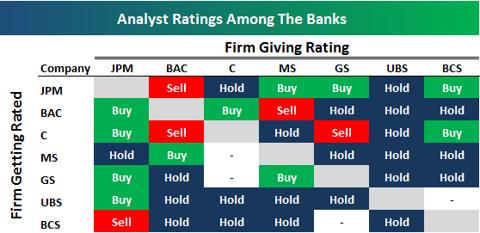
Why pick on Citibank? Didn't they agree to break up the company already? Well, one can argue that the biggest toxic assets reside in Citigroup, Lehman Brothers and Merrill Lynch. We all know Lehman was hung out to dry. Merrill's woes are now part of Bank of America's problems. BoA may or may not be able to digest Merrill's positions. Both Citi and BoA have been given tons of money by the US government. Will it be sufficient? In the past 12 months, taxpayers, sovereign wealth funds and private investors have sunk $1 trillion into failing U.S. and British financial institutions, while central banks have slashed their cost of funds to nothing and their collateral standards even lower.
It looks likely that the hole is simply too big to fill even by governments. Bank losses from the write-offs of bad loans and busted derivatives tally up to $1.5 trillion so far. In addition, $5 trillion to $10 trillion worth of off-balance-sheet businesses such as structured investment vehicles - leveraged lending vehicles used by big banks are being forced back to banks' balance sheets by regulators. Rules require banks to keep a base of real shareholder capital amounting to 10% of those funds. So banks need to find up to $1 trillion within the next year to meet that objective.That is in addition to all that has been injected into banks so far.
Add the $1.5 trillion in losses to $1 trillion in needed new reserves, and you can see that banks need as much as $2.5 trillion in new capital to remain solvent under current rules. Consider that the entire world banking system had only $2 trillion in shareholder capital in 2007, before everything blew up. Therefore, the entire system is simply insolvent, as liabilities are greater than assets. Governments aren't forcing banks to admit this, but investors are, and that is why big banks' shares are only a fraction of their value this year compared to their highs in 2008.
Governments, meanwhile, are trying desperately to help banks plug the gap, but they're coming up short. When you add the $500 billion from sovereign wealth funds to the $500 billion from the first tranche of the Troubled Assets Relief Program, it's only $1 trillion. That's already been provided. So that leaves a gap of $500 billion to $1.5 trillion. That's why Trichet said that banks don't need to keep 10% capital reserves.
Is this all priced in? Well, insolvent banks is why credit is not flowing, besides being a confidence issue as well. Even BoA and JP Morgan Chase are continuing to drop despite being on firmer ground. Investors have already factored in the likely outcomes. Nationalise (take over) Citibank, and force a merger with either BoA or JP Morgan Chase. Nationalisation means that banks would have to issue equity to the government, a process that wiped out current shareholders. Yes, that would mean most bank stocks would go to zero. If banks are insolvent, the most attractive asset they have is the brand. To leave them hanging around means they won't be able to do any lending, just like zombie firms. The new administration will have to bite the bullet on this. When this happen, it will be viewed as a positive, not a negative, as we will be on our way to cleaning up the zombies.
To be clear, when I say that Citibank and/or BoA might not be around soon, it basically means that they will be absorbed into another entity, not that they will disappear or that their jobs will disappear. The best that the big banks can hope for is that the 'bad bank' idea takes root - but they will have to ask for another $1.5 trillion to fund the 'bad bank', if that takes flight, then Citigroup, BoA and the rest can sell the toxic assets to the 'bad bank' ... then they can still survive, if the 'bad bank' idea fails... its nationalisation , baby...
This will not just be in the US but will affect a few of the top banks in Europe as well. The idea of a bad bank is basically an alarm bell to all that TARP as it is will be insufficient to bailout the big banks. We now cringe at the size of the TARP and Obama's stimulus package, well how about another $1.5 trillion for the bad bank - while that is good for the markets, it should be the death knell for USD.
p/s photos: Chen Run Xi

No comments:
Post a Comment